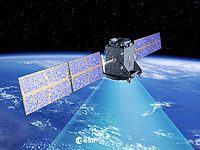

ESA’s GIOVE-A satellite – the first prototype of Europe’s Galileo satellite navigation system – is still working well after five years in space. The first ‘Galileo In-Orbit Validation Element’, GIOVE-A, was launched on 28 December 2005 by a Soyuz rocket from Baikonur in Kazakhstan, carrying a prototype rubidium atomic clock designed for the Galileo constellation. It was joined on 27 April 2008 by GIOVE-B, equipped with an ultra-precise passive hydrogen maser design as well as a second rubidium clock. Operational Galileo satellites will carry both clock designs for maximum reliability. Read More
